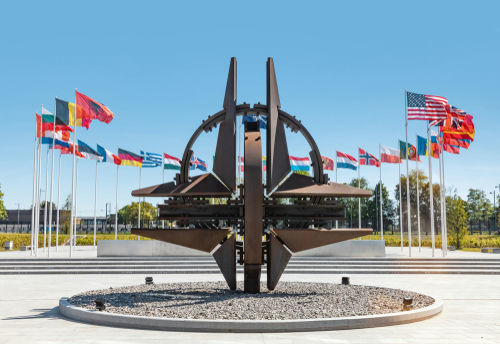Russia’s missile incursion into Polish airspace has sparked a diplomatic firestorm, with the Russian ambassador thumbing his nose at Poland’s demands for accountability.
Missile Incident Sparks Diplomatic Tensions
On March 24, 2024, a Russian missile brazenly violated Polish airspace, an act that has the Polish government and its NATO allies on high alert. The following day, Poland’s foreign ministry summoned Russian ambassador Sergei Andreyev to account for the breach. Astonishingly, Andreyev dismissed the summons, escalating an already tense diplomatic situation. This incident is the latest in a string of Russian missile-related security breaches since the onset of Russia’s full-scale invasion of Ukraine, reminding us that Moscow’s disregard for international norms knows no bounds.
Poland, a frontline NATO state in Eastern Europe, has consistently raised alarms about Russian military activities near its borders. This missile incursion, however, represents a significant escalation. It underscores the ongoing threat posed by Russia’s military aggression and the challenges NATO faces in responding to such provocations. The Polish government is not taking this lightly, with heightened security measures and a call for greater NATO solidarity in the face of these threats.
Patterns of Aggression and Diplomatic Fallout
This isn’t the first time Russian missiles have endangered Polish territory. In November 2022, a Russian-made missile struck Przewodów, Poland, resulting in civilian casualties. Although initially blamed on Russia, it was later suggested that a Ukrainian air defense missile may have been responsible while intercepting Russian attacks. Again in December 2022, a Russian KH-55 missile capable of carrying a nuclear warhead landed near Bydgoszcz, Poland. The delayed discovery of this missile months later exposed significant gaps in Poland’s air defense and military communication systems.
These incidents collectively highlight a disturbing pattern of Russian disregard for international borders and the safety of neighboring nations. Poland’s response, summoning Russia’s ambassador, was met with blatant disregard by Andreyev, who ignored the diplomatic summons. Such actions by Russia underline its refusal to engage diplomatically and its willingness to test NATO’s resolve.
NATO’s Role and the Risk of Escalation
NATO’s commitment to collective defense is being tested by these repeated incursions. As a member of the alliance, Poland relies on NATO’s support to bolster its defenses and deter further aggression. The latest missile incident has prompted calls within NATO to enhance air defense systems and surveillance capabilities in Eastern Europe, where the risk of conflict spillover remains high.
The stakes are high. A failure to respond decisively to these provocations could embolden Russia and lead to further escalations. The Polish government, along with NATO allies, is keenly aware of this, as they work to prevent any accidental or deliberate escalation that could trigger Article 5, the alliance’s mutual defense clause. The situation demands vigilance and a robust NATO response to ensure regional stability.
Long-term Implications and the Path Forward
The long-term implications of these missile incursions are profound. Beyond the immediate security concerns, there’s a risk of further deterioration in Poland-Russia relations, which could lead to broader NATO-Russia confrontations. This incident serves as a wake-up call for NATO to bolster its defense posture in Eastern Europe and reassess its strategies for dealing with Russian aggression.
For Poland, this means increased defense spending and resource allocation to strengthen its air defense capabilities. The Polish government faces mounting pressure to demonstrate its competence in ensuring national security. Meanwhile, public anxiety is rising in regions affected by missile incidents, potentially fueling anti-Russian sentiment.

